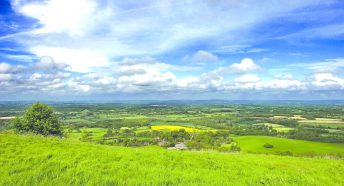Climate change: broadband not roads
CPRE Sussex supports the Committee on Climate Change in urging Ministers to reconsider road-building schemes and to switch road cash to invest in broadband.
Here’s the rationale…
Current UK government plans assume that pre Covid-19 pandemic road transport levels will remain at a projected 1% growth a year. However, if demand falls, plans for £28bn worth of new road schemes may simply not be needed at all. Chris Stark, Head of the UK Committee on Climate Change says Covid-19 has taught many people they can work from home thanks to the miracle of video conferencing.
This makes the expansion of fibre optics cheaper, better for the economy, and more climate-friendly than roads.
He believes, people, productivity and the economy would all benefit if road funds were re-directed from tarmac to fibre optics. His conclusion was reinforced by the head of the Automobile Association, Edmund King, who recently told BBC News he thought people would never fully return to their previous travel habits, and forecast that transport demand would shrink, not grow.
The implications are profound for commuters and for government finances.
Mr King went on to say that anecdotal evidence from people lucky enough to be working during the coronavirus-enforced lockdown suggests that infrastructure funds might be better spent on broadband to support home working.
He told BBC News: ‘The government mustn’t be investing in anything likely to increase carbon emissions. I expect that video conferencing will become the new normal, and we won’t return to travelling the way we did, saving people’s time and increasing their productivity.’
See more here: https://www.bbc.co.uk/news/science-environment-52371140
Writing in the Spectator Rory Sutherland commented that: ‘Many of the world’s problems would be solved if we cut down on gratuitous movement. It is a telling fact that during the coronavirus lockdown most of us can eat, drink and entertain ourselves perfectly well with a level of road traffic last seen in 1955. And yet at the same time my life is far more cosmopolitan than before: last week I had meetings with people in Sydney, Bucharest and both Georgias (Atlanta and Tbilisi), and talked to students in Boulder and Ottawa.
“Do we really want to return to our previous freneticism? I predict a brewing revolt in terms of our approach to work and travel. Many people have now noticed that by not commuting you gain an extra day every week.’





